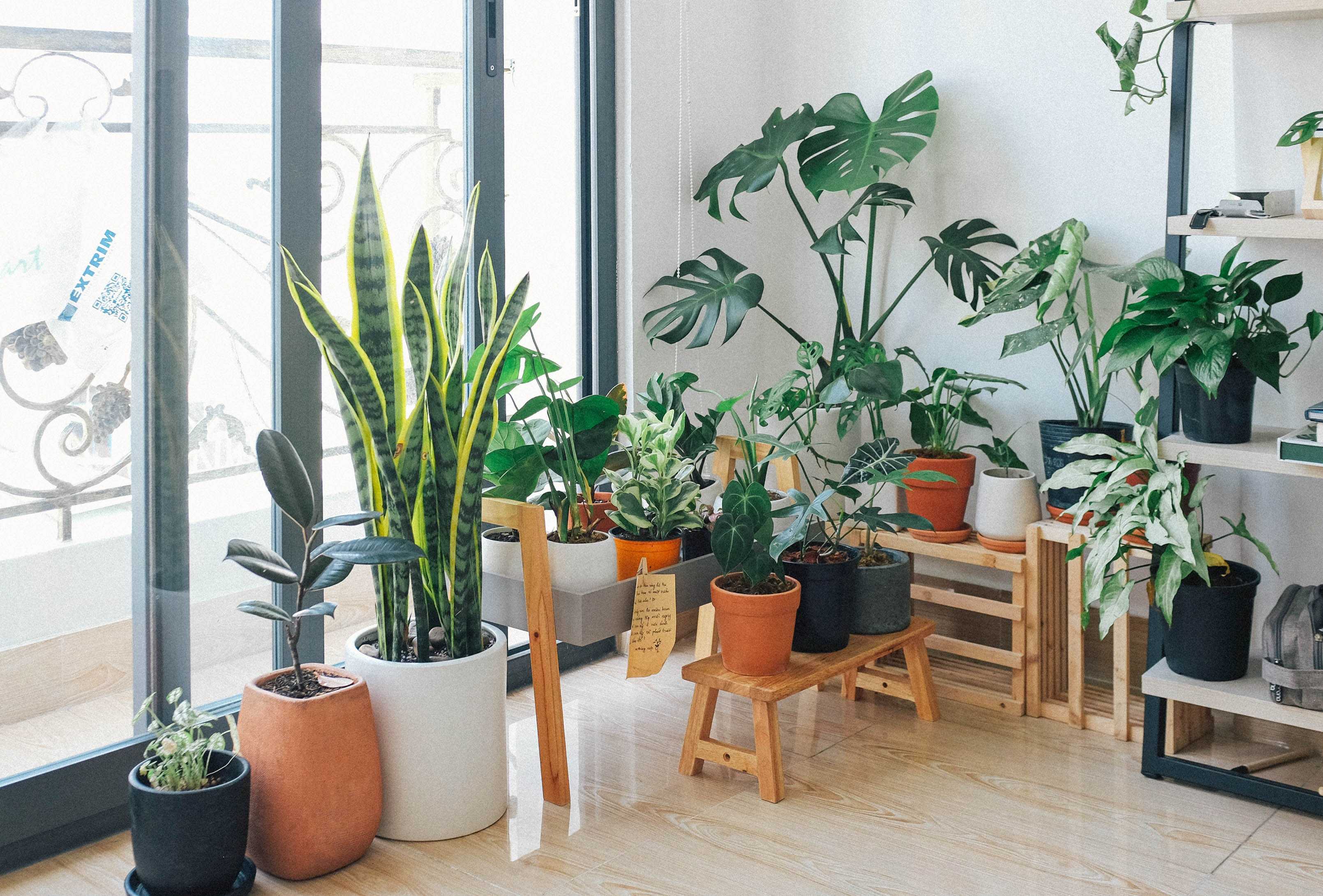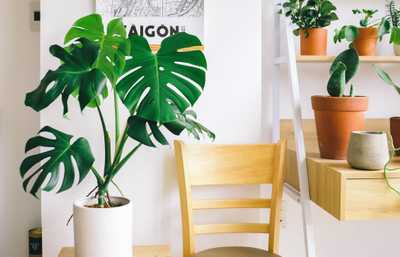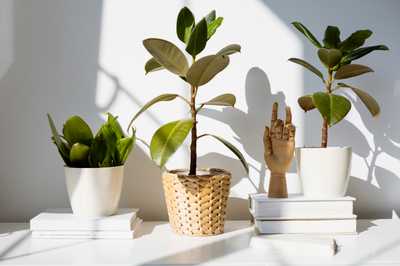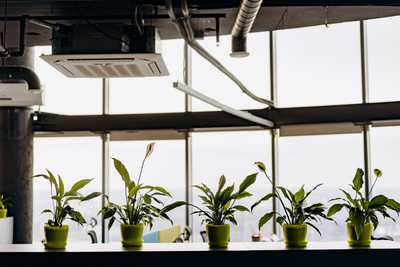Plants have been an essential part of our lives for thousands of years. We use them for food, medicine, and aesthetics. However, it is only in recent years that we have discovered the tremendous benefits of indoor plants for our mental health. Plants not only add beauty and tranquility to our surroundings but also have a significant impact on our mood and cognitive function.
In this article, we explore the mental benefits of indoor plants and how they can improve our overall quality of life. From reducing stress and anxiety to increasing productivity and creativity, indoor plants offer a natural way to promote mental wellbeing. Let's dive in and explore the power of green therapy.
The Mental Benefits of Indoor Plants:
-
Reducing Stress and Anxiety
The fast-paced, modern lifestyle can be incredibly stressful, and chronic stress can have severe consequences for our mental and physical health. However, research has shown that indoor plants can be an effective way to reduce stress and anxiety levels.
According to a study conducted by the University of Hyogo in Japan, participants who spent time caring for indoor plants experienced significant reductions in psychological and physiological stress levels. The act of caring for plants, such as watering and pruning, can be a meditative and relaxing experience that promotes mindfulness and reduces stress.
In addition, indoor plants can help purify the air, removing harmful toxins and pollutants that can contribute to stress and anxiety. Plants such as spider plants, peace lilies, and Boston ferns are particularly effective at removing pollutants such as formaldehyde, benzene, and xylene.
-
Boosting Productivity and Concentration
Indoor plants can also have a positive impact on our productivity and concentration levels. Research has shown that plants in the workplace can increase productivity by up to 15%. Plants can help reduce distractions and create a more pleasant working environment, leading to improved focus and concentration.
In addition, indoor plants can help improve air quality, reducing the amount of carbon dioxide in the air and increasing oxygen levels. This can help combat fatigue and improve mental alertness, leading to improved productivity.
-
Improving Mood and Creativity
Indoor plants can also have a significant impact on our mood and creativity levels. Research has shown that exposure to natural environments can improve our overall wellbeing and lead to more positive emotions.
Plants can help create a calming and relaxing atmosphere, reducing feelings of anxiety and depression. In addition, the presence of plants can promote creativity and inspiration, leading to more innovative thinking and problem-solving.
-
Providing a Sense of Purpose and Connection
Caring for indoor plants can provide a sense of purpose and connection to nature, which can be beneficial for our mental health. Taking care of a living organism can give us a sense of responsibility and accomplishment, leading to increased self-esteem and confidence.
In addition, indoor plants can help create a connection to the natural world, even in urban environments. This connection can be essential for our mental wellbeing, as it can help us feel more grounded and connected to something larger than ourselves.
| Benefit | Description |
|---|---|
| Air purification | Many indoor plants can help to purify the air by removing toxins like benzene, formaldehyde, and trichloroethylene. |
| Stress reduction | Studies have shown that being around plants can help to reduce stress and anxiety, making indoor plants a great addition to home offices and other high-stress environments. |
| Improved mood | Indoor plants can help to boost mood and productivity, making them a great choice for offices and other workspaces. |
| Natural beauty | Indoor plants add natural beauty and visual interest to any space, making them a great choice for interior design. |
| Improved indoor climate | Indoor plants can help to regulate humidity and temperature levels, creating a more comfortable and healthy indoor climate. |
| Noise reduction | Some indoor plants can help to absorb sound and reduce noise levels in a room. |
| Improved sleep | Plants release oxygen at night, which can improve sleep quality and help you wake up feeling more refreshed. |
| Reduced illness | Plants can help to reduce illness by increasing humidity levels and removing airborne pollutants that can cause respiratory issues. |
| Increased creativity | Being around nature and natural beauty can help to boost creativity and cognitive function, making indoor plants a great choice for creative workspaces. |
| Low maintenance | Many indoor plants are low-maintenance and easy to care for, making them ideal for those who are new to gardening or who don't have a lot of time to devote to plant care. |
Here is a popular list of indoor plants:
- Aglaonema Red Plant A low-maintenance plant with attractive, variegated leaves. It can help to purify the air by removing toxins like formaldehyde and benzene.
- Anthurium A tropical plant with heart-shaped flowers that add a pop of color to any space. It can help to improve air quality and reduce stress.
- Areca Palm Plant A tropical plant with feathery fronds that can help to purify the air by removing toxins like formaldehyde, benzene, and carbon monoxide.
- Areca Palm Plant XL Same as above, but in a larger size.
- Bamboo Palm Plant A tropical plant with lush, green fronds that can help to purify the air by removing toxins like formaldehyde, benzene, and carbon monoxide.
- Boston Fern A classic fern with feathery fronds that can help to purify the air and add humidity to a room.
- Chlorophytum Spider Plant A low-maintenance plant with long, slender leaves that can help to purify the air by removing toxins like formaldehyde and carbon monoxide.
- Dieffenbachia A colorful plant with variegated leaves that can help to purify the air by removing toxins like formaldehyde and xylene.
- Dragon Tree A tall, spiky plant with bold, architectural leaves that can help to purify the air by removing toxins like xylene and trichloroethylene.
- English Ivy A trailing plant that is perfect for adding a touch of green to bookshelves or hanging baskets. It can help to purify the air by removing toxins like benzene and formaldehyde.
- Ficus Moclame Plant XL A large plant with attractive, variegated leaves that can help to purify the air by removing toxins like formaldehyde and benzene.
- Fittonia Green Plant (Nerve Plant) A low-growing plant with attractive, brightly colored leaves. It can help to purify the air and reduce stress.
- Golden ZZ Plant A low-maintenance plant with glossy, golden leaves that can help to purify the air by removing toxins like benzene and toluene.
- Hahnii Lucky Bamboo Plant 3 Layer A low-maintenance plant that is said to bring good luck and prosperity. It can help to purify the air by removing toxins like formaldehyde and benzene.
- Jade Plant A succulent with thick, fleshy leaves that is said to bring good luck and prosperity. It can help to purify the air by removing toxins like benzene and toluene.
- Kalanchoe Plant Pink A low-maintenance plant with attractive, pink flowers. It can help to purify the air and reduce stress.
- Mini Broken Heart Plant A low-maintenance plant with heart-shaped leaves that can help to purify the air and reduce stress.
- Money Plant A trailing plant that is said to bring good luck and prosperity. It can help to purify the air by removing toxins like formaldehyde and benzene.
- Monstera Deliciosa Plant A tropical plant with large, fenestrated leaves that can help to purify the air and reduce stress.
- Peace Lily Plant A low-maintenance plant with attractive, white flowers. It can help to purify the air by removing toxins like benzene and formaldehyde.
- Peperomia Green Plant A low-growing plant with a variety of leaf shapes and colors. It can help to purify the air and reduce stress.
- Pink Snake Plant A trailing plant with attractive, pink and green leaves that can help to purify the air and reduce stress.
- Pothos Plant A popular trailing plant with variegated leaves that can thrive in low-light conditions and help to purify the air by removing toxins like formaldehyde, benzene, and xylene. It's also easy to care for and can be grown in a variety of containers, making it a versatile choice for indoor gardening.
- Snake Plant A low-maintenance plant with tall, spiky leaves that can help to purify the air by removing toxins like benzene, formaldehyde, and trichloroethylene
- Syngonium Pink Plant A low-growing plant with attractive, pink and green leaves that can help to purify the air and reduce stress.
Conclusion:
Indoor plants offer a natural and effective way to promote mental wellbeing. From reducing stress and anxiety to boosting productivity and creativity, plants have a significant impact on our mood and cognitive function. By bringing the natural world into our homes and workplaces, we can improve our quality of life and create a more peaceful and harmonious environment.
So, if you are looking for a natural way to promote mental health, consider incorporating indoor plants into your daily routine. Not only will they add beauty and serenity to your surroundings, but they will also provide numerous mental health benefits.
When selecting indoor plants, consider the amount of natural light in your space, as well as your ability to care for the plants. Some plants require more attention than others, so choose plants that fit your lifestyle and level of experience. Some easy-to-care-for options include spider plants, snake plants, and pothos.
Incorporating indoor plants into your routine can be as simple as adding a few small plants to your desk or creating a full-fledged indoor garden in your home. Whatever you choose, the mental benefits of indoor plants are undeniable. By bringing nature indoors, we can improve our mental wellbeing and create a more peaceful and harmonious environment.
Happy Planting!
Discover More
Most Viewed
Christmas is a season of joy, love, and traditions. And what better way to get into the holiday spirit than through timeless carols? These musical gems have been bringing people together for generations. Here’s our ranked list of the Top 10 Christmas Caro…
Read More
























